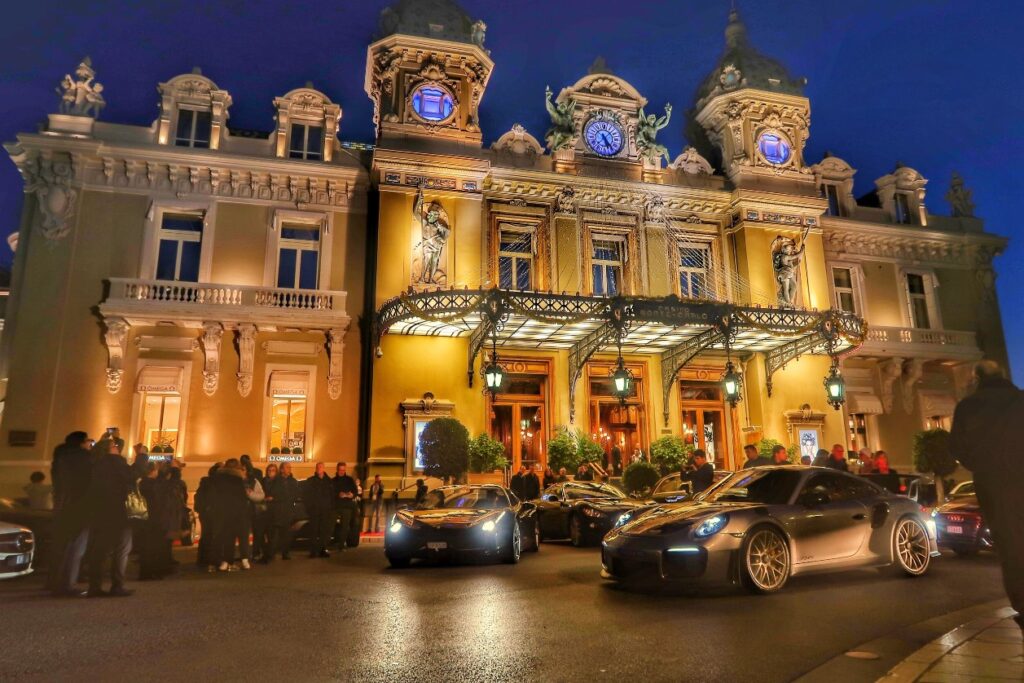
Casino games have long been a captivating form of entertainment, drawing countless of players from diverse cultures around the globe. From the opulent casinos of Las Vegas to the thriving gambling halls of the Chinese gambling capital, these games serve as a link that brings together people across different backgrounds. The allure of fortune, tactics, and gambling entices not only those hoping to strike it rich but also those in search of a shared experience.
The cultural impact of casino games extends well beyond the gaming floor. They often embody the cultural standards and beliefs of the societies in which they prosper. Games such as seven-card stud, blackjack, and the spinning wheel have integrated into the tapestry of popular culture, influencing everything from cinema to clothing. As we explore this captivating intersection of gambling and culture, we can comprehend better how gambling games shape and are affected by the environment surrounding us.
Chronological Evolution of Gaming Games
The beginnings of gambling games can be traced back to old civilizations, where betting in various forms was widely practiced. In Ancient China, around two thousand three hundred years before Christ, a variant of gambling known as Keno was well-known, while in ancient Rome, soldiers would often bet on the consequences of their matches. The concept of using chance for fun and gain developed over the centuries, leading to the establishment of more organized activities. link alternatif suletoto By the final Middle Ages, gambling houses began to appear in the continent, notably in Italy, which brought forth early forms of famous activities still enjoyed today.
As gambling increased popularity in European regions, the 17th and 18th centuries saw the emergence of casinos as dedicated venues for gaming. The initial official gaming venue, the Ridotto, was founded in the city of Venice in 1638, featuring activities like Baccarat games and the game Faro. This era marked a crucial shifting point, as casinos commenced to attract not just the wealthy but also the burgeoning middle-income class. The sophistication of games evolved, leading to the introduction of new rules and variations that enriched the gaming experience.
In the 19th century, the industrial revolution and transformations in societal norms also altered the environment of gaming activities. The launch of roulette and new gaming machines attracted a more diverse crowd, and casinos became seen as legitimate recreation. This period witnessed the worldwide proliferation of gaming, as gambling houses expanded from the continent to the Western Hemisphere, culminating in the establishment of the famous Las Vegas Strip in the 1900s. The progress of casino games has progressed into the current era, integrating technology and online platforms, allowing them available to a worldwide audience.
# Cultural Importance across Various Cultures
Casino activities have deep-rooted cultural significance within a multitude of communities across the globe. In Las Vegas, the very fabric of the urban landscape is woven around gaming venues, where gambling is not just a pastime but a central aspect of entertainment and social interaction. The vivid lights and lively atmosphere attract a vast audience, showcasing how casino games can influence local economies and local cultures. This setting transforms the notion of leisure into an enriching event that affects fashion, music, and even movies.
Conversely, some communities treat gambling with an air of caution, considering it through the lens of ethical considerations and tradition. For instance, in numerous Eastern communities, games like Mahjong and Pai Gow are full of history and possess significant social meanings. These games are often played during get-togethers and celebrations, fostering social ties and strengthening family ties. The act of playing these games goes above mere amusement, reflecting values such as deference to seniors and the importance of shared enjoyment.
Simultaneously, in European countries such as Monte Carlo and Rome, casino games serve as symbols of luxury and elegance. The elegant atmosphere of these establishments attracts both visitors and native inhabitants, maintaining a sense of status and elitism. The art of the game of poker and the strategic elements of games like the game of baccarat are appreciated, molding community relationships and cultivating an attraction that captivates a diverse audience. This highlights how gambling can concurrently mirror and influence cultural perspectives towards danger, gain, and relationship building.
Economic Impact and Travel Industry
Gambling activities play a crucial role in the financial context of many regions, particularly those that rely heavily on visitor traffic. The revenue produced from casino operations fuels local economies, creating jobs not only within the casinos but also but also in related sectors such as hotel management, restaurant services, and entertainment. This surge of tourists, drawn by the allure of games and the overall casino experience, stimulates spending across multiple businesses, contributing to the economic health of the region.
The presence of casinos often leads to the construction of infrastructure, including lodging, transportation systems, and leisure amenities. These improvements are essential in improving the overall tourist experience, making locations more appealing to visitors. Additionally, many casinos contribute in local communities through sponsorship of events and charitable initiatives, further integrating themselves into the community structure of the locality. Such contribution not only supports economic growth but also cultivates a positive image of the gambling sector.
Furthermore, the global popularity of casino games drives tourism competition, with regions vying to attract players from around the world. Iconic destinations like Las Vegas and Macau have become synonymous with casino culture, drawing millions annually. This advantage encourages innovation and diversification within the gambling sector, influencing trends in leisure and hospitality that resonate beyond their borders. The consequences of this tourism extend far, impacting local economies and cultural interactions on a worldwide scale.